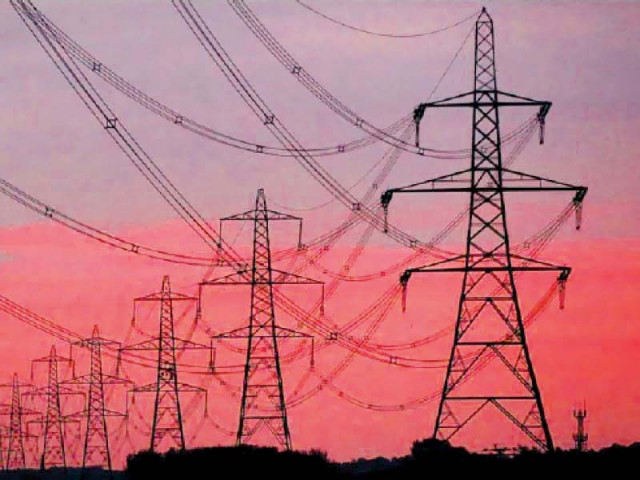Privatisation of power distribution companies-II
It may require electricity market where price is determined by forces of demand and supply

Many federations in the world have energy sectors, especially power distribution, under provincial administration, although the entities are mostly privately owned in advanced countries like the US, Australia and Canada.
In Germany, even local government manages power distribution. In India, DISCOs (distribution companies) are provincially managed where these are in the public sector as well.
In Pakistan, both provinces and the federal government have played with the idea of provincialisation of DISCOs. In Sindh, there has been a particular interest in this respect. PPP-led provincial governments are ideologically pro-public sector and labour classes.
They have been interested in taking control of other important enterprises like Pakistan Steel. However, the devil is in detail. The deal does not go through due to financial complications as have been described earlier in the case of privatisation, although such complications may be lesser in case of governments dealing with each other.
To the extent of subsidies, it may be fair to expect that provincial governments may accept the existing and future liabilities. Sustaining people is provincial responsibility and sustaining state is federal, it may be argued.
There may be a formula to share other accumulated losses. The question is why should a provincial government accept the financial liabilities? There may be political and ideological reasons in Sindh, but other provinces may not be interested. A particular issue and difficulty is the political and economic requirement of uniform pricing. It affects welfare, employment and development. Provincialisation or privatisation may disturb this uniform pricing system. Many other possible initiatives are affected by this requirement. A fundamental decision may have to be done in this respect where provinces may compete with each other in terms of resource allocation, pricing and investments.
Would smaller provinces like that? Certainly not! K-P may? Some circles in K-P have been demanding pricing autonomy in energy sector but are not willing to pay costs elsewhere.
Uniform pricing policy may have to be removed or kept simultaneously in all provinces. Benazir Bhutto government announced a special electricity tariff for Swabi, which could not be sustained for long? The question is why provincialisation; from fire into frying pan? If government is bad, it is so, both in federation or province. It may, in fact, be worse.
The influence of chieftains, elite and vested interests is much more in provinces. Provinces are not able to collect taxes. Will they be able to collect electricity bills, directly or indirectly? Are provinces able to manage public services like water, sewerage and solid waste, which are under their domain?
It may happen that DISCOs may have to be reverted back to centre after being worsened by provincial administrations.
Segmentation and restructuring
Perhaps, the first priority should be restructuring and segmentation. Most DISCOs are spread over a large area.
For example, Pesco starts from DI Khan through Kohat, Peshawar, Nowshera to Mansehra. It is an area of 12,000 square km, too remote and widespread for management to effectively control. Regional managers have their fiefdoms with all kinds of vices, problems and issues.
Similarly, other DISCOs like Mepco have the same issues. Both are among top loss-making enterprises. Smaller companies may make these financially slim to attract local private sector. This does not require any prerequisite. It can be done without loss of time and much complication.
Right sequencing?
In the aforementioned perspective, what to do first: privatise or provincialise, restructuring/segmentation or implement CTBCM.
We have argued elsewhere that electricity market may take precedence over all other initiatives. A big if is the successful business model of electricity market.
CTBCM is facing a number of issues and bottlenecks. Now at the end of 2022, IGCEP is being implemented without reference to CTBCM. Reverse auction is waiting for implementation for many years now. Privatisation can only proceed ahead when market framework is known and is stabilised.
As discussed elsewhere, a DISCO becomes wire-only business and becomes much simpler and less risky in electricity market titled CTBCM in Pakistan. Role of government would be reduced or may become indirect. In that case, the debate of federalisation or provincialisation becomes less important.
Common problems
It is often argued that in most developing countries, electricity sector is in public sector. Poverty and subsidy issues are also widespread in developing countries, which necessitate government involvement.
Privatisation may require some kind of electricity market where price is determined by market forces of supply and demand. Cross-subsidies are to be replaced by direct subsidies to the recipients by the government through taxes.
IMF and IFIs have been demanding such policy frameworks. It has not happened in most developing countries, although reform processes are there at various stages, as it is in Pakistan.
When chips are down, politicians and governments are reluctant to implement the proposed systems. Risks of change are great. There are poverty and macroeconomic problems.
IFIs are callous and insensitive to these issues and insist on their frameworks developed through grants, technical assistance and loan packages.
DISCOs’ privatisation is complicated by their monopolistic nature of structure and business. It may be argued that privatisation may take second place to electricity market.
Conclusion
Has Privatisation Commission been working in silo, without understanding and knowing the problems and issues of DISCOs and what is going on in the sector in terms of electricity market framework?
In a recent meeting at Privatisation Commission, as reported in newspapers, this has been acknowledged in one way or the other. They have decided to involve power sector and Ministry of Energy in their deliberations. If so much is dependent on the outcome of electricity market process called CTBCM, it is vital that various echelons of government acquire understanding of it. There are problems and issues in CTBCM, some of which have been recognised and acknowledged by Nepra. However, some vital issues still deserve discussion and evaluation.
CTBCM will affect Pakistan’s economy in a major way. Nepra and CPPA duo cannot be left on their own and allowed to ignore considerations of vital issues that have been pointed out by the stakeholders. Government should organise a third-party independent review of CTBCM and introduce adjustments where required. If nothing else, an independent evaluation will give confidence to government in supporting the implementation of CTBCM framework and ultimately privatisation.
THE WRITER IS FORMER MEMBER ENERGY OF THE PLANNING COMMISSION AND AUTHOR OF SEVERAL PUBLICATIONS ON THE ENERGY SECTOR



















COMMENTS
Comments are moderated and generally will be posted if they are on-topic and not abusive.
For more information, please see our Comments FAQ